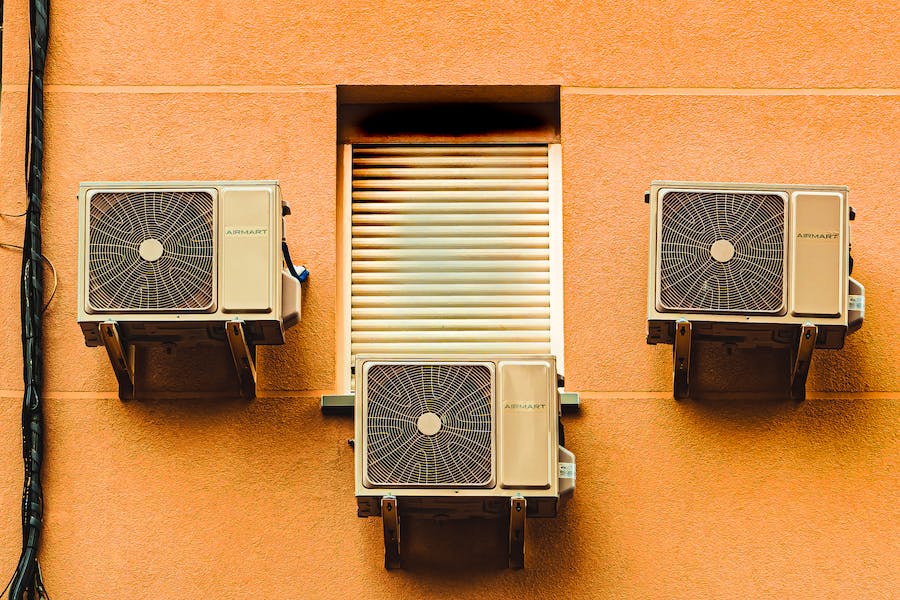The world of air conditioning relies heavily on the functionality of AC capacitors. These seemingly small components play a crucial role in ensuring that your cooling system operates efficiently. However, over time, AC capacitors can deteriorate, leading to a host of issues, from reduced cooling performance to frequent breakdowns. This article serves as your comprehensive guide on where to buy AC capacitors and how to navigate the process. We’ll explore the reasons behind AC capacitor replacement, the signs that indicate it’s time for a change, and where to find the right replacement. Whether you’re a DIY enthusiast or seeking professional guidance, this guide has you covered.
Where To Buy AC Capacitor?
You can buy AC capacitors from various sources, including local HVAC supply stores, online retailers like Amazon or eBay, and manufacturer’s dealers. It’s important to choose a reputable supplier, ensure the capacitor matches your AC unit’s specifications (voltage, microfarads, tolerance), and consider professional installation for safety and proper functionality.
Understanding AC Capacitors
AC capacitors are essential components within air conditioning systems, playing a pivotal role in their operation. These small but critical devices are responsible for storing and releasing electrical energy as needed, helping to start and run the electric motors that drive the compressor and fans in your AC unit. Understanding AC capacitors is crucial for homeowners, as it enables them to recognize when these components are failing and to ensure their HVAC systems run smoothly.
There are two primary types of AC capacitors: start capacitors and run capacitors. Start capacitors provide the initial jolt of electricity needed to kickstart the compressor motor. Once the motor is up and running, run capacitors take over, providing a continuous flow of electrical energy to keep the motor and fans operating efficiently. These capacitors are rated in microfarads (µF) and are designed to work within specific voltage ranges.
When AC capacitors start to fail, they can cause various problems within your air conditioning system. Recognizing the signs of a malfunctioning capacitor is essential for timely replacement. Common symptoms include irregular cooling, frequent system breakdowns, and unusual sounds like humming or buzzing. Identifying these issues early on can prevent further damage to your AC unit and extend its lifespan.
Why Replace AC Capacitors?
AC capacitors are integral components of your air conditioning system, and their proper functioning is crucial for its efficiency and performance. Here’s why you should consider replacing AC capacitors when they start to deteriorate or fail:
- Ensuring Efficient Operation: AC capacitors are responsible for providing the necessary electrical jolt to start and run the compressor and fans. When capacitors weaken or fail, they can’t provide the required electrical boost, causing your AC system to struggle, resulting in reduced cooling efficiency.
- Preventing System Breakdowns: A malfunctioning capacitor can lead to frequent system breakdowns. When the capacitor fails, the electric motor may overheat or become damaged, leading to costly repairs or replacements.
- Maintaining Consistent Cooling: A failing capacitor can lead to erratic cooling performance. You may notice that your AC unit doesn’t cool your space evenly, leaving some areas uncomfortably warm. Replacing the capacitor can restore consistent cooling throughout your home.
- Avoiding Compressor Damage: In many cases, a malfunctioning capacitor can put additional stress on the compressor, potentially leading to its premature failure. Compressor replacements are among the most expensive HVAC repairs, making timely capacitor replacement a cost-effective preventive measure.
- Extending System Lifespan: Regularly replacing capacitors when they show signs of wear or malfunction can extend the overall lifespan of your air conditioning system. A well-maintained system is less likely to require major repairs or replacements.
- Reducing Energy Consumption: An inefficient AC system due to a faulty capacitor may consume more electricity to achieve the desired cooling, resulting in higher energy bills. Replacing the capacitor can help reduce your energy consumption and save you money in the long run.
- Enhancing Indoor Comfort: A properly functioning AC system ensures that your indoor environment remains comfortable, especially during hot summer months. Replacing capacitors as needed helps maintain consistent and reliable cooling, ensuring your comfort.
How To Choose The Right AC Capacitor?
Choosing the right AC capacitor is crucial for ensuring that your air conditioning system operates efficiently and reliably. Here’s a step-by-step guide on how to select the appropriate capacitor:
- Check Your AC Unit’s Specifications: Review your AC unit’s documentation or consult the manufacturer’s information to find the specific capacitor requirements. Pay attention to voltage rating (VAC), microfarad rating (µF), and tolerance.
- Determine The Type Of Capacitor: Identify whether your AC unit requires a start capacitor, run capacitor, or both. Start capacitors provide an initial boost to the motor, while run capacitors maintain its operation.
- Read The Existing Capacitor’s Label: If you’re replacing a capacitor, examine the label on the old one. Note down the voltage, microfarad rating, and tolerance values. Ensure that the replacement capacitor matches these specifications precisely.
- Select A Reputable Supplier: Choose a reliable HVAC supply store or reputable online retailer to purchase your capacitor. Ensure that they provide capacitors that meet your AC unit’s specifications.
- Double-Check Compatibility: Confirm that the selected capacitor is compatible with your AC unit’s make and model. Some units may have specific requirements that must be met for optimal performance.
- Consider Quality And Durability: Opt for capacitors from trusted brands known for their quality and durability. High-quality capacitors are less likely to fail prematurely.
- Be Mindful Of Budget: While quality is essential, consider your budget as well. There are various capacitors available at different price points, so choose one that strikes a balance between quality and affordability.
- Verify The Warranty: Check if the capacitor comes with a warranty. A warranty can provide peace of mind in case the capacitor fails prematurely.
- Seek Professional Assistance (If Unsure): If you’re uncertain about the correct capacitor for your AC unit, or if the installation process seems challenging, it’s advisable to seek assistance from a qualified HVAC technician. They can diagnose your system’s needs and install the capacitor correctly.
- Safely Store The Capacitor: Once you’ve purchased the capacitor, store it in a cool, dry place away from direct sunlight or extreme temperatures. Protect it from moisture and physical damage.
Maintenance Tips To Prolong Capacitor Life
Proper maintenance can significantly extend the lifespan of your AC capacitors and help ensure your air conditioning system operates efficiently. Here are some maintenance tips to follow:
- Regular System Maintenance: Schedule annual or bi-annual HVAC system inspections and maintenance by a qualified technician. They can identify and address potential capacitor issues before they escalate.
- Keep The Condenser Unit Clean: Regularly clean the outdoor condenser unit, ensuring that it’s free from debris, dirt, leaves, and other obstructions. A clean unit allows for better airflow and cooling efficiency, reducing stress on the capacitor.
- Protect The Capacitor From Extreme Temperatures: Insulate the capacitor if it’s exposed to direct sunlight or extreme heat. Overheating can reduce its lifespan. You can use a capacitor cover or shield to provide shade.
- Check And Tighten Electrical Connections: Periodically inspect and tighten electrical connections, including those on the capacitor. Loose connections can lead to increased electrical resistance and heat buildup.
- Monitor Voltage Levels: Use a multimeter to check the voltage levels across the capacitor terminals. Ensure they match the rated voltage specified on the capacitor label. If voltage levels are consistently higher, it can stress the capacitor and lead to premature failure.
- Inspect Capacitor For Signs Of Damage: Regularly inspect the capacitor for physical damage, such as bulging or leaking. If you notice any abnormalities, replace the capacitor promptly.
Conclusion
Proper maintenance and timely replacement of AC capacitors are essential for the reliable and efficient operation of your air conditioning system. Neglecting these critical components can lead to increased energy consumption, uncomfortable indoor temperatures, and costly repairs. By understanding the role of capacitors, recognizing the signs of malfunction, and following maintenance guidelines, you can ensure your AC capacitors serve their purpose effectively. Remember, regular inspections and professional assistance when needed will help you enjoy a comfortable and trouble-free cooling experience while extending the lifespan of your AC unit.
FAQ’s
How Do I Know If My AC Capacitor Is Failing?
Look for signs like irregular cooling, frequent breakdowns, or unusual sounds. A professional HVAC technician can diagnose the issue.
Can I Replace The AC Capacitor Myself?
If you have electrical knowledge and experience, it’s possible. However, professional installation is recommended for safety and accuracy.
Where Can I Buy A Replacement AC Capacitor?
You can purchase AC capacitors from HVAC supply stores, online retailers, or manufacturer’s dealers.
What Is The Typical Lifespan Of An AC Capacitor?
AC capacitors can last 10-20 years with proper maintenance, but they may fail sooner due to various factors.
Are There Any DIY Maintenance Tasks For Capacitors?
You can keep the area around the condenser unit clean and regularly check for physical damage, but major maintenance and replacements should be done by professionals.




















Leave a Reply